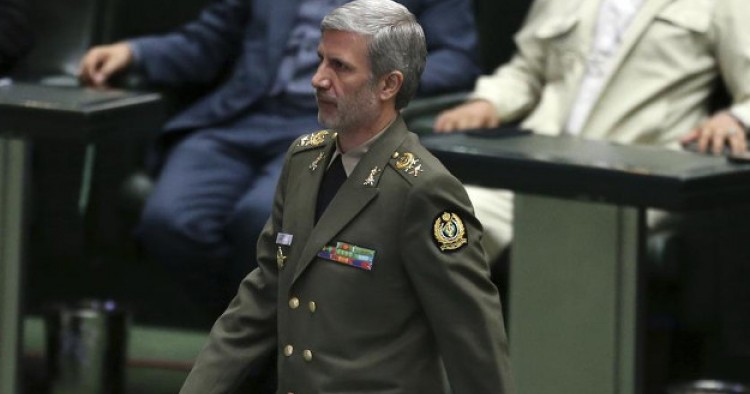Senior Iranian political and military officials have rejected a demand by U.S. Ambassador to U.N. Nikki Haley that U.N. inspectors visit Iran’s military sites, the Iranian media reported today. “Nikki Haley is not in a position to make such a claim,” Brigadier General Amir Hatami, Iran’s defense minister, said in an interview with the Iranian Parliament’s website. Mohammad Baqer Nobakht, President Hassan Rouhani’s spokesman, also emphasized that the country’s military sites were “no-go areas” for foreigners, and added that such remarks were “unacceptable.” Major General Hassan Firouzabad, a senior advisor to Supreme Leader Ali Khamenei and former chief of staff of the Iranian Armed Forces, went a step further and said that even Iranian officials are not permitted to visit the country’s sensitive military sites.
In addition, Ali Akbar Velayati, another aide to Khamenei, echoed a similar view. “The Americans should take their wish to the grave that they will be allowed to inspect our military institutions under the pretext of J.C.P.O.A.,” Ali Akbar Velayati said, referring to the Joint Comprehensive Plan of Action also called the 2015 nuclear agreement. “Trump’s remarks are for domestic consumption. They know they have no dignity or influence in the region,” he added.
Velayati, a former foreign minister who is also the head of Azad University’s board of founders, alleged that Washington and its allies are trying to increase pressure on Iran because of the countries’ growing regional power. “In Syria, despite plots by America and Israel, victories are being accelerated and the Islamic Republic of Iran continues its support for the resistance chain.”
Comment: Last week, Haley visited the International Atomic Energy Agency (I.A.E.A.) office in Vienna to urge the international watchdog to inspect Iranian military bases and ensure Tehran is not running a secretive program related to its nuclear activities. "As good as the IAEA is, it can only be as good as what they are permitted to see," Haley said after returning from Vienna. "There are also numerous undeclared sites that have not been inspected yet," she added. "That's a problem." She continued: "I have good confidence in the IAEA, but they are dealing with a country that has a clear history of lying and pursuing covert nuclear programs.”
The Middle East Institute (MEI) is an independent, non-partisan, non-for-profit, educational organization. It does not engage in advocacy and its scholars’ opinions are their own. MEI welcomes financial donations, but retains sole editorial control over its work and its publications reflect only the authors’ views. For a listing of MEI donors, please click here.













